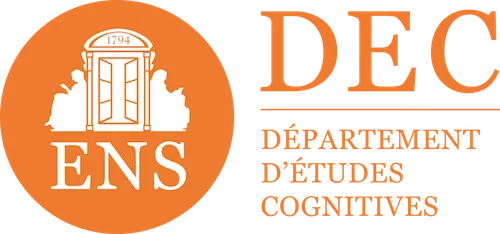

Situations: what AI has changed
E-learning scenarios have made learning more interactive and relevant. Today, thanks to the advances of AI, these teaching methods are changing at lightning speed, offering ever richer and more personalized learning experiences.
Imagine a scenario where each employee can immerse themselves in realistic situations, receive instant and personalized feedback, and continuously improve their skills. That is exactly what AI allows in e-learning. By combining the power of artificial intelligence with the best practices of cognitive science, we are entering a new era of professional training.
But why are scenarios so crucial? What are the scientific foundations that make them so effective? And above all, how is AI revolutionizing their design and implementation? This article invites you to explore these questions in depth, by highlighting the major transformations brought by AI in the world of e-learning scenarios.
1. The importance of scenarios and scientific foundations
The crucial role of role plays in learning
Situational scenarios are at the heart of modern e-learning, as they allow learners to immerse themselves in realistic contexts where they can apply their knowledge and skills in a concrete way. They also offer a way to test yourself, deconstruct preconceived ideas, and strengthen understanding through practical experience. In addition, they promote learning transfer, that is, the ability to apply the skills and knowledge acquired in a training context to real work situations. In fact, we explained all the benefits of simulation in our article. Interactive simulation: an apprenticeship in which you are the hero.
For example, an employee training for a customer service position may be faced with a variety of customer complaint management scenarios. These practical exercises not only strengthen theoretical understanding but also develop essential skills such as problem solving and communication. In this way, scenarios increase engagement and knowledge retention.
The scientific foundations of simulations
Cognitive science research has amply demonstrated the effectiveness of scenarios for learning. Studies show that active experiential learning, where learners are involved in meaningful tasks, promotes better retention information and deeper understanding.
Kolb's experiential learning theory holds that individuals learn best when they go through a cycle of concrete experience, reflection, conceptualization, and application. Situations fit perfectly into this framework, allowing learners to have concrete experiences, to reflect on their actions, to conceptualize the lessons learned and to apply these lessons in real contexts.
In addition, The testing effect, or test effect, shows that regularly testing your knowledge improves the long-term retention of information. Situations offer an ideal platform for this type of test, allowing learners to practice in simulated environments and receive immediate feedback. To learn more about this famous testing effect, see our article The testing effect: learning sustainably.
Finally, the scenarios allow To learn by trial-error-feedback, a process recognized for its effectiveness in learning. By practicing in a safe environment where mistakes are allowed, learners can experiment with different approaches, receive accurate and immediate feedback, and thus adjust their understanding and skills. To deepen this concept, I recommend our article Learning by trial and error: unleash the potential of feedback.
2. The traditional limits of scenarios
The challenges of traditional design
Designing effective scenarios poses considerable challenges. Traditionally, creating these scenarios requires a lot of time and resources. Trainers must not only design realistic scenarios, but also adapt them to different contexts and learner profiles. This complexity often leads to high costs and extended deadlines, making it difficult to quickly and frequently implement new scenarios.
Moreover, customizing these scenarios for each learner is a daunting task. Traditional approaches often lack flexibility, which can lead to generic and less effective learning experiences.
Scalability issues
Scalability is another major obstacle to traditional scenarios. Keep training courses up to date with the latest skills and information can be complicated. The adjustments needed to keep scenarios relevant and effective require constant reassessment and modification, which is often a long and painstaking process.
With the rapid evolution of skills required in many sectors, training programs need to adapt constantly. However, without automation, this scalability remains limited. Fortunately, solutions like the LMS Didask offer tools to overcome these challenges, automating updates and providing adaptive learning paths.
3. AI revolution in role plays
Design automation and acceleration
AI has transformed the way scenarios are designed and deployed. Previously, as seen earlier, creating realistic scenarios required a significant investment of time and resources. Today, AI makes it possible to automate a large part of this process, making design faster and more efficient.
Didask's educational AI, for example, can analyze raw content such as slides, PDFs or documents, identify essential concepts and automatically create situations that are relevant and adapted to the learning context. This automation is more than just assembling information: It pedagogically sequences the contents and selects the most effective teaching methods for each learning granule. Thus, the designer only has to check and validate the scenarios generated by the AI, saving valuable time.
In addition, the AI can recommend what type of scenarios will be the most appropriate according to the educational objectives and the profile of the learners. For example, for a leadership training module, AI could suggest simulations of strategic decision-making or role plays in conflict management.
To learn more about how Didask uses AI to improve learning paths, I invite you to check out our page dedicated to educational AI or our articles:
- AI & eLearning design: I compared ChatGPT and Didask... the verdict is final! - How can AI further accelerate the transfer of skills? - LMS, AI and cognitive sciences, the winning e-learning jackpot
Personalization and intelligent feedback
One of the biggest benefits of AI in scenarios is its ability to personalize learning for each user. Each learner is unique, with different needs, rhythms, and learning styles. AI allows to adapt scenarios in real time, offering a truly personalized experience.
Before the advent of AI, personalized mentoring was virtually impossible on a large scale. Now, AI can provide tailored feedback and detailed advice based on the individual performance of each learner. For example, a learner who is struggling in a conflict management scenario could receive specific advice to improve their communication and negotiation skills, based on their previous interactions.
AI can also automate mentoring by offering personalized virtual coaching sessions, offering ongoing support and adapted to the needs of each learner. This type of intelligent and immediate feedback was unthinkable without the intervention of AI.
To further explore how AI can personalize learning, I recommend our article: Adaptive Learning and generative AI: the winning combination for online training.
Continuous improvement and scalability
AI not only creates and customizes scenarios; it also allows continuous improvement of training content. By analyzing learning data, AI can identify weak spots in scenarios and suggest improvements to make them more effective.
This continuous analysis means that training programs can stay up to date with the latest skills and information needed, without requiring constant manual revisions. Designers can thus focus on educational innovation, while AI manages the optimization and updating of content.
The LMS Didask uses this analytical capacity to provide recommendations for improvement to designers, ensuring that training courses remain relevant and effective over time.
Conclusion
In summary, AI is revolutionizing e-learning scenarios, transforming already powerful tools into even more effective and personalized learning instruments. By automating the design of relevant and adapted scenarios, AI relieves the burden on designers, allowing them to focus on tasks with higher added value.
Thanks to personalization and intelligent feedback, each learner benefits from a tailor-made experience, with immediate feedback and virtual mentoring that was once unthinkable. Continuous improvement, made possible by the analysis of learning data, ensures that training courses remain constantly up to date and optimized.
The integration of AI into e-learning scenarios is not only a technological innovation; it is a major advance for vocational training, offering unprecedented opportunities to develop skills in an effective and sustainable way. Adopting these technologies is essential to stay at the forefront of modern pedagogy.
To explore how the LMS Didask can transform your training programs and make you benefit from these advances, do not hesitate to visit our site or book a demo.
Make an appointment directly with our eLearning experts for a demo or simply more information.
.png)











